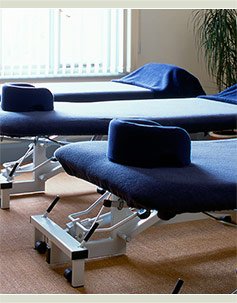Male infertility and its treatment
Male related factors account for about 30-40% of problems in conception. Sperm count is low in some men, or sperm may have an abnormal shape, preventing them to swim towards the egg successfully. A large percentage of men (40%) who present with abnormal semen analysis remain with no definite aetiologic diagnosis. In about 15% of men no abnormalities can be found at all.
Sperm abnormalities
Causes
The most common anatomical abnormality found in subfertile men is a varicocele. A varicocele results from abnormal dilation of the veins within the testes. This causes insufficient drainage of blood from the testes, resulting in excessive pooling of blood and therefore higher intrascrotal temperatures. Varicoceles can give rise to poor sperm count and/or poor morphology.
A history of infection such as a urinary tract infection or prostatitis can contribute to subfertility, leading to low sperm count and motility and the presence of white blood cells in the semen.
Some men suffer from liquefaction problems, e.g. the semen remains too coagulated so that sperm is not released sufficiently after ejaculation. Liquefaction problems can indicate male accessory gland disorders (prostate gland & seminal vesicles) and hint at a history of infection.
Other possible causes leading to male infertility by interfering with the production of sperm are smoking, exposure to chemicals, immune system abnormalities, or systemic disorders such as diabetes or hypertension that can lead to erectile dysfunctions.
Treatment
Western medicine has very little means to improve sperm quality and quantity, and management of male infertility is in most cases unsatisfactory. Clomiphene citrate is sometimes prescribed for 3-4 months which can improve sperm count to a certain extend, it does however not improve sperm motility or morphology, and no studies suggest increased fertility. Antibiotics are prescribed if an infection is found, and can be effective in those cases. Intrauterine insemination (IUI) may be performed to overcome abnormal cervical mucus, it is however mostly suitable for normal sperm. IVF and ICSI may enhance fertility.
Chinese medicine on the other hand can offer a large percentage of men a significant improvement in sperm count, morphology, motility and liquefaction. Research studies show that both acupuncture and Chinese herbal medicine affect hormone levels and testicular blood flow, thus promoting the production of healthy sperm. Chinese medicine increases sperm motility, concentration and survival rate possibly by improving the physiological integrity of sperm membranes. Certain herbs improve liquefaction time by stimulating the secretion of important enzymes into the prostate fluid. Acupuncture has been shown to improve both sperm quality and quantity when carried out regularly over several weeks. One study also suggested that acupuncture carried out at time of their partner's ovulation greatly enhance the sperm's activity.
At the Natural Fertility Clinic we question the patient to ascertain what disharmony according to Chinese medicine exists and them prescribe herbal medicine or acupuncture to establish equilibrium and improve sperm number, vigour and motility. With it we try to establish possible causes for the sperm damage, such as the use of certain medications or a history of infection. We also ask for the results of the sperm tests.
